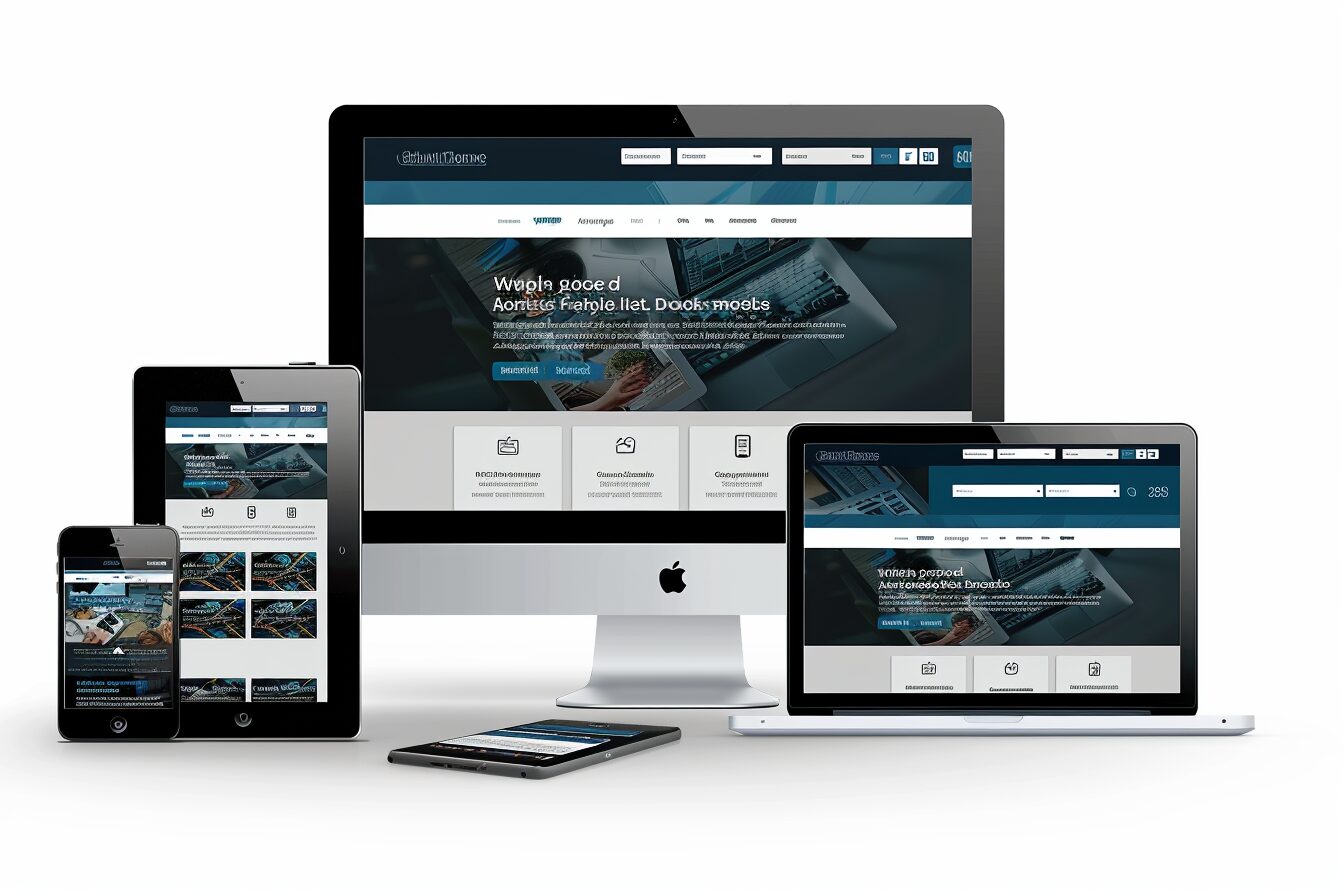Future Directions in WordPress Applications
As the most widely used content management system (CMS) globally, WordPress is constantly evolving, pioneering changes that redefine the ease and efficiency of website building. Innovative functionality is continually introduced, and existing features are regularly optimised to provide a more streamlined, user-friendly experience. The platform sets a high standard in the CMS world, continually looking ahead to incorporate the latest technological advancements and meet users’ ever-changing needs.
One skyrocketing trend that WordPress is anticipated to embrace fully is the increase in artificial intelligence and machine learning. These technologies promise to simplify website design further and offer a more personalised experience for end-users. Voice search optimization is another pressing direction being taken for WordPress. WordPress sites will need to adapt and optimise for voice search as people turn to voice assistants for their online queries. Similarly, augmented reality (AR) and virtual reality (VR) are expected to be mainstream soon, opening up new possibilities for immersive user experiences.
Anticipating Changes in CMS Platforms
As technology continues to evolve, trends in Content Management Systems (CMS) platforms like WordPress are also progressively transforming. One of the significant shifts expected in this field is geared towards automation. Given the current prominence of Artificial Intelligence and Machine Learning, these technologies are likely to be integrated into WordPress and similar platforms to enhance efficiency. These innovative provisions will enable automated content updates, smart SEO suggestions, and website design.
Another anticipated change lies in security and privacy. In an era of data breaches and privacy concerns, CMS platforms are predicted to emphasise secure coding practices and data protection. Upcoming updates are expected to incorporate more robust security measures, making them impervious to most forms of cyber-attacks. Furthermore, features like data encryption and two-factor authentication, among others, are expected to become standard in such platforms, providing users with a safer and more secure environment.
Unfolding Advancements in WordPress Design
WordPress continues to innovate and transform as we delve deeper into the digital age. Harnessing the potential of emerging technologies, web designers are creating astonishingly sophisticated sites that are visually appealing, user-friendly, and efficient in communication. Advanced design plugins like Elementor and Beaver Builder offer many options for design customization, making it easier for designers to create unique experiences. Secure, responsive, and robust websites are now the norm, triggering expectations for more agile and accessible WordPress design functionalities.
Artificial intelligence has found its way into WordPress design, hinting at an exciting future where automation and machine learning could play significant roles. AI plugins and tools are increasingly integrated into the platform’s core design algorithms, enabling simpler user navigation, smarter content recommendations, and automated analytics. With the constant advancements in design parameters coupled with integrated tools for SEO, e-commerce, and social media marketing, WordPress design is progressively becoming a multidimensional sphere that caters to aesthetics and evolving digital marketing strategies.
Predictions for Future WordPress Functionality
Examining the tech landscape, specific trends are poised to shape WordPress’s evolution in the coming decade. Foremost among these is the advancement of artificial intelligence. As AI gains traction, we anticipate WordPress integrating more machine-learning tools into its platform. This will likely take the form of intelligent SEO assistance, real-time content optimization, and even AI-driven theme creation.
Simultaneously, the push towards mobile optimization continues unabated. WordPress must adapt and innovate accordingly as internet usage transitions from desktop to mobile. More advanced, streamlined mobile website creation and responsive design tools will become increasingly integral. Furthermore, with the widespread adoption of mobile payment systems, future WordPress installations may come equipped with more sophisticated e-commerce functionality.
Adapting to Upcoming WordPress Updates
In a domain as dynamic as website design and content management, staying abreast of potential updates is crucial, especially with platforms as pervasive as WordPress. The sophisticated nature of WordPress, with its market share eclipsing 40% of all websites, makes it a habitual target for new features and improvements. To match pace with these continuous advancements, users need to keep an eye on upcoming updates and be ready to adapt accordingly.
Ensuring a seamless transition during updates involves understanding the nature and implications of the changes. For instance, modifications in themes or plugins may necessitate corresponding alterations in site design. Similarly, updates related to security enhancements will require users to bolster their website’s privacy provisions. Furthermore, improvements to the block editor or content management system can result in a paradigm shift in how content is created and managed. Therefore, continuous knowledge updates and technical adaptation are pivotal for optimal WordPress usage.
• Familiarise yourself with the new features: Before you update your WordPress site, it’s important to understand what changes are coming. This could involve reading up on release notes, watching tutorials or participating in beta testing. By doing this, you’ll better understand how these updates will affect your site and can plan accordingly.
• Backup your website: It is always recommended to back up your website before making any major changes, such as an update. A recent backup allows quick recovery if anything goes wrong during the update process.
• Test in a staging environment: A staging environment is essentially a clone of your live website where you can test updates without affecting the site. This way, issues or conflicts with themes and plugins can be addressed before applying the update to the live site.
• Update themes and plugins first: Often, when WordPress releases an update, theme and plugin developers also release updates to ensure compatibility. Therefore it’s best practice to update all themes and plugins before updating WordPress.
• Monitor performance after updates: After successfully implementing an update, monitor your website closely for any potential issues like slow load times or broken links that may arise due to conflicts between the new version of WordPress and existing content or code.
In conclusion, adapting to upcoming WordPress Updates requires strategic planning. The key lies in understanding what each change entails and preparing one’s digital infrastructure to seamlessly integrate these advancements into their system. With careful preparation and execution of these steps mentioned above, users can leverage new features effectively while ensuring minimal disruption during transitions.
Understanding the Future of Website Building with WordPress
As we delve into the digital era, looking at the prospects of website-building platforms is important. WordPress, one of the most popular content management systems, is certainly leading the charge with its constant innovation and adaptation to emerging technological trends. Predicting the future evolution of this platform can provide a more nuanced understanding of the future of web development and management.
Primary among the new possibilities are the advancements in Gutenberg, WordPress’s block-based editor. This presents seamless content creation that delivers a powerful and flexible design and content management approach. Augmented by the increased integration of AI and ML technologies, WordPress could provide smarter, more intuitive user experiences. Soon, expect to see transformative features like predictive typing, auto-design layouts, and intelligent analytics that ease the content creation process and heighten the user experience.
Evolving WordPress Features to Look Out For
As website owners and developers keep up with the industry’s ever-changing demands, WordPress remains agile, introducing innovative features to improve user experience and website functionality. A significant modification to look out for is the comprehensive integration of artificial intelligence and machine learning. Such progress can turn WordPress into an intelligent platform capable of personalised user experiences, predictive typing, and smart search functionalities.
Another upcoming enhancement revolves around Gutenberg, a block-based editing tool. The Gutenberg editor’s continuous improvements indicate a future where WordPress designers can create complex layouts with minimal coding requirements. Custom blocks and vast design options are expected to transform traditional page and post creation, enabling more intuitive design experiences. Understanding these evolving WordPress features and planning to harness them would create a competitive edge in web designing and development.
WordPress Enhancements to Anticipate
Understanding forthcoming enhancements to this versatile Content Management System (CMS) is crucial for developers and website designers seeking to make the most out of WordPress. With the passing of each year, the open-source platform introduces new features, improvements to existing functionalities, and, often, significant alterations to its core architecture. Anticipating these changes allows professionals to leverage the platform to its maximum ability, creating more engaging, functional, and user-friendly websites.
A keen focus can currently be seen towards elevating the user experience, particularly in the realm of website design and customization. Despite being an existing feature, the Gutenberg editor continues evolving, promising a more intuitive block-building experience in upcoming versions. Moreover, experts foresee substantial development towards seamless omni-channel integration. This would offer businesses the advantage of managing their online presence, from their main website to social media pages, directly from their WordPress Dashboard. This not only reduces complexity but potentially offers vast improvements in online performance.
The Next Wave of WordPress Innovations
WordPress, one of the most utilised website-building platforms, is continuously broadening its horizon and the versatility of its features. Its frequent updates and enhancements, each packed with an array of user-friendly tools and intuitive functionalities, have helped solidify its status as an unrivalled CMS platform. From simplified block editing to new design freedom, WordPress has demonstrated a tremendous capacity to adapt to user needs and industry trends, making it a platform designed for the future.
There’s anticipation for further innovations that will revolutionize the WordPress experience. Greater compatibility with mobile devices, more powerful analytics tools, and customization options are expected. Over the years, WordPress upgrades have greatly facilitated the job of web developers and users; the forthcoming updates are expected to continue this trend. User experience, which is at the heart of WordPress, will be more streamlined and smooth, thanks to the increasing interoperability of various features and tools.
Preparing for WordPress Transformations
Maintaining relevance in the rapidly evolving digital world requires adapting to changes swiftly. As the heart of many modern internet sites, the WordPress platform is not exempt from these transformations. Users must frequently update and improve their interfaces to match user expectations and technological advancements.
The next wave of WordPress transformations will affect several website management and design areas. For example, with advanced customisation options, themes and templates will likely become more dynamic. Other underlying changes may include progressive web applications, functional programming, machine learning, and AI integration for smarter SEO or content suggestions. This revolution will see WordPress’s adaptability and user-friendly nature take centre stage.








